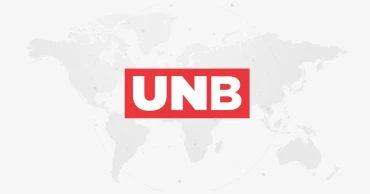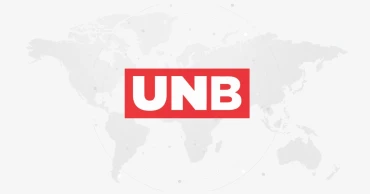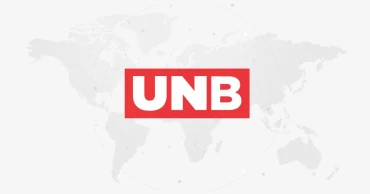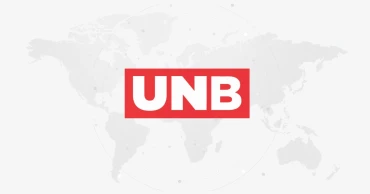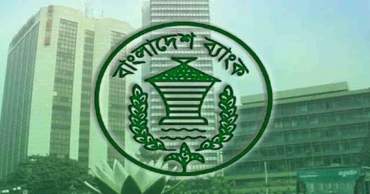BB
BB orders strict loan data updates to bar defaulters from election race
Bangladesh Bank has ordered all scheduled banks to promptly update loan repayment data as prospective MP candidates, many of them business and political figures, scramble to clear defaults and overdue installments to remain eligible for the national polls.
Managing directors of various banks, non-bank financial institutions (NBFIs), and Bangladesh Bank officials said they are receiving a surge in applications for loan regularisation.
In response, the Credit Information Bureau (CIB) of Bangladesh Bank (BB) has issued a strict directive to all banks and financial institutions nationwide, ordering rapid updates of loan-related data to confirm the financial eligibility of potential candidates.
Bangladesh Bank eases SME loan rules for refinance fund amid rising defaults
Bangladesh Bank officials said on Saturday that even if a borrower secures a stay order from a court, financial institutions must report the accurate status of the loan to the CIB without any alteration.
The central bank emphasised that there will be no scope to conceal information or offer ‘arbitrary’ concessions.
A special meeting was held on October 29 with CIB representatives from all banks and NBFIs, where institutions were informed of the government’s firm instruction to complete loan data updates before the election to ensure no loan defaulter can contest.
“The Bangladesh Bank has made it clear that the government will not allow any loan defaulter to become a candidate in the upcoming election,” said a CIB official.
Arif Hossain Khan, Executive Director and spokesperson of Bangladesh Bank, said the central bank is updating customers’ loan statuses as per government instructions.
He added that providing updated credit information to Bangladesh Bank is a routine responsibility of banks.
Govt may compensate investors in 5-bank merger: Bangladesh Bank
The central bank has also directed all institutions to strictly follow existing rules concerning borrowers attempting to reschedule long-overdue defaulted loans ahead of the election. No exceptions, special privileges, or rule violations will be permitted for rescheduling.
All financial institutions, particularly those yet to submit their default data to the CIB, have been ordered to do so immediately. Updated reports detailing the full status of all new and ongoing loans, based on month-end outstanding balances, are mandatory.
Banks have been specifically instructed to update the following information:
Accounts of ongoing and settled loans, along with accurate balances and classification status,
Maturity dates and overdue balances, Number and value of defaulted instalments, and details of installment payments or recoveries.
To ensure round-the-clock verification of loan information for potential candidates, Bangladesh Bank has directed every bank branch to appoint a dedicated officer. Their names and mobile numbers must be submitted to the central bank.
Bangladesh Bank directs MFS providers to halt online gambling transactions
Electoral law clearly states that a candidate will be disqualified if their bank loan status is not classified as ‘regular’ up to seven days before the submission of nomination papers.
Officials concerned believe this rigorous initiative by Bangladesh Bank will play a decisive role in preventing loan defaulters from securing nominations ahead of the election.
3 months ago
BB-Dollar: Taka loses 12.72% value in 2024 as dollar strengthens
The Bangladesh Bank (BB) increased the US dollar exchange rate by Tk12 in 2024, resulting in a 12.72% depreciation of the local currency, the taka, over the year.
A central bank data analysis shows that the central bank fixed the dollar exchange rate at Tk122 on December 31, compared to Tk110 in January 2024. This indicates a Tk12 increase in the dollar's price and a corresponding 12.72% loss in the taka's value.
Bangladesh has been struggling with a dollar crisis for three consecutive years, driving up the dollar's price and weakened the taka further.
Meanwhile, banks have also increased the dollar price by Tk2 for both buying and selling. Later, the taka's value dropped by another Tk2. Banks will now sell the dollar to customers for sectors such as imports, loan repayments, and others at a maximum rate of Tk122.
Bangladesh Bank increases crawling peg rate by Tk 2
Ashraf Ahmed, former president of the Dhaka Chamber of Commerce and Industry (DCCI), noted that the banks' move to raise the dollar price will escalate import costs. As a result, the price of imported goods will rise since more money is needed to pay for them, he said.
Talking to UNB, Dr Tawfiqul Islam Khan, Senior Research Fellow at the Centre for Policy Dialogue (CPD), highlighted the inflationary impact of the taka's depreciation. The devaluation by Tk2 means that the prices of goods will inevitably increase. This, coupled with the rising cost of imported goods, will add further pressure on inflation, he pointed out.
1 year ago
BB drafting separate rules for Islamic banking; ‘bankers divided’
Bangladesh Bank (BB) is drafting separate rules to regulate the Islamic banking system in the country, a move that has stirred mixed reactions among bankers and analysts.
An Executive Director of the central bank, who is involved in drafting the rules, said that under the proposed regulations, conventional banks would no longer be permitted to offer Sharia-based banking services directly. Instead, banks would need to establish subsidiary institutions to operate Islamic banking.
“If this law comes into effect, conventional banks will not be able to provide Sharia-based banking services,” the official added.
DSE trading ends with upward trend on Sunday
Some bankers, however, argue that this move could contradict Bangladesh’s long-standing commitments under the Islamic Development Bank (IDB).
The country became a signatory to the IDB in the 1980s, which facilitated the introduction of Sharia-based banking within conventional banks.
Mohammad Abdul Mannan, former Managing Director of Islami Bank Bangladesh, expressed concerns about the implications of the proposed regulations. “New law (regulations) regarding establishment of subsidiaries instead of Islamic banking windows for conventional banking will be contradictory with the declaration of IDB,” he told UNB.
Instead of conflicting with the IDB’s declaration, he said, the central bank could set up a dedicated department to monitor Sharia compliance and fund management in Islamic banks.
Syed Mahbubur Rahman, Managing Director of Mutual Trust Bank, highlighted the current success of Islamic banking windows and branches operated by conventional banks.
DSE index gains 30.88 points as 211 stocks rise in early trading
“All the banks that are doing Islamic banking through windows or branches are in good condition. I don't think that making one Islamic and the other traditional will yield good results. If we prepare separate balance sheets and income statements and follow the instructions of the central bank properly, [it] would be more effective and time-befitting,” he said.
Mahbubur Rahman went on to say, “If they monitor properly, and if the Sharia board is in place properly, then I think there should be no problem here.”
But some analysts view the situation differently.
While acknowledging the financial viability of Islamic banking under conventional banks, they pointed out challenges related to Sharia compliance.
Former Chairman of the Association of Bankers Bangladesh (ABB) Mohammad Nurul Amin questioned the integrity of current practices. “The balance sheet of the conventional bank is also the same as that of the Islamic branch. How much is Sharia-based and correct?” he asked.
Dr Toufiq Ahmed Chowdhury, former Director General of the Bangladesh Institute of Bank Management, supported the idea of separate rules, questioning the authenticity of Islamic banking in its current form.
He said, “I personally support a separate law. Here, we are not actually doing Sharia-based banking to conduct business; we are doing it to make money, taking some money from people in the name of Islam. When it is launched, is it truly Islamic banking? Not even 1.0 percent of the total portfolio is PLS. So, why is it being called Islamic banking?”
18 banks at risk due to potential loan defaults by top 3 borrowers: Bangladesh Bank
According to central bank officials, the draft law is still under review, and no final decision has been made.
Husneara Shikha, Executive Director and spokesperson for BB, stated that stakeholder consultations are essential before finalising the law.
“When making a law, various types of stakeholder consultation and analysis [have] to be done. What are the international policies? At the international level, conventional banks never open Islamic windows,” she explained.
The Islamic Bank Company Act will be finalised after incorporating opinions from all stakeholders.
Islamic banking is a banking system aligned with the spirit, ethos and values of Islam, operating in accordance with the principles outlined by Islamic Shariah.
Currently, Bangladesh has 10 fully-fledged Sharia-based banks, in addition to 30 conventional banks offering Islamic banking services. These conventional banks operate 33 Islamic banking branches and around 700 windows for Sharia-based services.
1 year ago
BB announces 10% incentive for exporting agro-processed products
Bangladesh Bank has introduced a 10 percent cash incentive for the export of agricultural and agro-processed products.
This incentive will apply specifically to juices and drinks made from locally produced fruit pulp, allowing exporters in this sector to benefit from the support.
The Foreign Exchange and Policy Department of BB issued a notification on Thursday, outlining new guidelines for cash assistance in the export of agricultural (vegetables/fruits) and processed (agro-processing) agricultural products.
According to the notification, exporters will now receive cash assistance for exporting juices and drinks made using locally sourced fruit pulp.
1 year ago
Bangladesh Bank raises maximum cash withdrawal limit to Tk2 lakh
A bank account holder can withdraw cash up to two lakh taka a day for this week given the current security situation, according to a Bangladesh Bank circular.
The central bank issued the instruction to the MDs of all commercial banks through SMS on Saturday. It will be effective from Sunday, the first working day of the week.
Earlier on Thursday the maximum cash withdrawal limit was set at one lakh taka.
Read more: Bangladesh Bank Governor Abdur Rouf resigns
However, businesspeople can draw larger amount of cash for payment of salaries of employees ensuring security on their own, said the circular. The same is applicable for the expatriates.
The central bank also asked banks to supervise that a person cannot withdraw money from multiple branches of banks in a day. This directive should be followed especially in the case of key political leaders.
On Thursday, the Bangladesh Financial Intelligence Unit (BFIU) under the BB was ordered to report any amount of money withdrawn by a politically important person. The names of political leaders, bank chairmen, businessmen, secretaries, and senior police officers are on this list. Such instruction is given mainly to prevent any person from withdrawing money for criminal activity or escaping from the country.
Read more: Bangladesh Bank operates without governor and deputy governors
1 year ago
Bangladesh Bank closing around 200 MFS accounts a day in Hundi crackdown: Governor Abdur Rouf
Bangladesh Bank (BB) Governor Abdur Rouf Talukder on Monday (March 11, 2024) said that around 200 mobile financial services (MFS) accounts are closing each day due to their Hundi connection.
The central bank is checking rigorously trade transactions through LC and mobile financial services to prevent money laundering activities by any means, he said.
The governor said this in the opening ceremony of the money laundering prevention workshop held at the head office of the Criminal Investigation (CID), Bangladesh Police in the capital on Monday.
Rauf highlighted the steps taken to prevent money laundering since his joining the Central Bank as Governor.
He said, “When I joined Bangladesh Bank in 2022, there was a severe crisis of foreign exchange in the country. At that time took the first step to stop over-invoicing.”
Read more: Inflation, currency prime focus of BB’s next monetary policy
Again, money laundering occurs despite keeping the profit of export products abroad. Initiatives are also taken to prevent that, he mentioned.
The governor expressed the strong stand of the central bank on banning hundi.
He said that expatriates may send Tk500 to their family in the country, then he gives it to someone he knows abroad and asks him to give it to his family in the country.
That money remains abroad. In contrast, a representative in Bangladesh paid the amount. As earlier payment was made through home delivery, now it is done through MFS.
Read more: Entry-level women's recruitment doubles in banking sector, but board representation still lagging
Around 200 such accounts are being closed every day. Later some accounts were opened again with guarantees, permanent action was taken against some of them, he said.
Highlighting the context of the campaign against money changers, the governor said that USD $45 to $50 million transactions are done through money changers in the country every year. About $270 billion in transitions are made in the banking channel.
But despite a small fraction of transactions, when money changers hiked the dollar rate, many expatriates tried to hold on to remittances. This is how the dollar crisis was created, Rouf pointed out.
“That is why the campaign against money changers is ongoing. Also, avoid dealing in cryptocurrencies. It is completely illegal in our country,” said the BB Governor.
CID Chief and Additional IGP Muhammad Ali Mia in the chair, head of Bangladesh Financial Intelligence Unit (BFIU) Md. Masud Biswas also spoke at the function.
Read more: Bangladesh received $2.16 billion remittances in February, highest in fiscal
1 year ago
Entry-level women's recruitment doubles in banking sector, but board representation still lagging
The women employment in the banking sector increased by 1407 in July-December period of 2023, and the overall perrcentage of women employees at banks stood at 16.37 percent in Bangladesh.
Meanwhile just 13.51% of board members in the banks are women.
Bangladesh Bank’s (BB’s) latest report on gender equality revealed this information. There are 33346 women employees in 61 banks in the country, which is 16.37 percent of the total employees of banks, according to the report.
The BB report shows that among the scheduled banks in 2023, 43 private commercial banks have the highest number of women employees 22,248, which is 16.32 percent of the total employees.
Foreign commercial banks have the highest proportion of female officers, 24.18 percent as compared to other banks.
In the period July-December 2023, the participation of women as board members was only 13.51 percent. Among them, foreign commercial banks have the highest female board member participation rate at 17.54 percent.
Read more: Bangladesh's women empowerment showcased in Myanmar
On the other hand, there is no participation of women board members of specialized commercial banks in the discussed period.
According to the reports submitted by banks during the period July-December 2023 shows that the participation rate of women employees is higher at the entry-level 17.04 percent and mid-level 15.79 percent than at the higher levels 9.36 percent.
Analysis of the obtained data shows that the participation of women in the banking sector is high at the initial stage.
At the same time, the participation rate of female employees under thirty years of age 20.99 percent is more than double that of female officers above 9.58 percent in scheduled banks.
Bangladesh’s place has improved by 12 steps in the gender gap report of the World Economic Forum (WEF) in 2023, as women's employment increased in the country.
The BB report shows that Bangladesh is holding the 59th position in 2023 improving from 71st in 2022 in the gender gap of WEF, among 146 countries in the world.
Read more: PM Hasina keen to create more scopes for women in every sector: Nasrul Hamid
Executive Director of CDP Dr. Fahmida Khatun said that women's employment is usually increasing with the developing socio-economic scenario of the country and decreasing the ratio of women's employment does not match that calculation.
She focused on the need to study why the ratio of women employment has been decreasing in the banking sector.
Bangladesh Bank’s spokesperson Mezbaul Haque told UNB that women's employment has increased in the banking sector following the central bank’s policy to reduce the gender gap in banks and financial institutions.
The central bank prefers women both in employment and entrepreneurship development. Loan disbursement and interest incentives have been given to women encouraging them involved in financial inclusion.
The BB is still working to ensure a sound environment in the workplace of banks. Facilities including maternity leave and daycare opportunities for women’s employees have increased, he said.
Read more: Proven Passive Income Ideas for Women in 2024
1 year ago
Bangladesh received $2.16 billion remittances in February, highest in fiscal
Bangladesh received inward remittances of USD $2.16 billion in February, which is the highest in 8 months (July-February) in the current fiscal year 2023-24.
According to the provisional data of the Bangladesh Bank (BB) revealed on Sunday, the expatriates sent $2.16 billion remittance to the country through the legal channel. In the previous month January, the expatriates had sent $2.10 billion in remittances.
Bangladesh has received so far $13.26 billion in inward remittances in the first eight months of the year through the legal channel.
Md Mezbaul Haque, BB spokesperson, told UNB that inward remittances flow increased in the legal channel as the government and banks are providing incentives.
Read more: Brac Bank introduces digital Form C, electronic document submission platform for commercial remittances
He said the central bank instructed banks to provide additional incentives from their financial sources, which keeps a role in increasing the flow of inward remittances in the legal channel.
With the government's 2.5 percent incentive on expatriate income, banks can buy dollars at an additional 2.5 percent higher price. A total of 5 percent is getting incentives. As a result, remittances are coming to the country through legal channels.
The executive director of the private research institute South Asian Network on Economic Modeling (SANEM) Prof Dr. Selim Raihan said that a total of 5 percent incentive on remittances will help to boost remittances temporarily. But there will be no long-term solution.
Dr. Raihan said,”To increase remittances, hundi should be stopped. If you want to stop hundi, you have to stop money laundering. Now a lot of money is being smuggled abroad. It has to be controlled by any means.”
Read more: How to safely send remittance to Bangladesh?
2 years ago
Inflation, currency prime focus of BB’s next monetary policy
The Bangladesh Bank (BB) will announce its next monetary policy on Wednesday for the second half of the fiscal year 2023-24 to tame inflation and ease exchange rate pressure.
As part of the preparation, the draft of the monetary policy was approved at the central bank board meeting on Sunday.
Bangladesh Bank authorises 90-day buyers' credit to import essentials for Ramadan
Officials who attended the board meeting told UNB that the exchange rates would not be real market-based in the upcoming monetary policy as the foreign exchange market is not stable yet.
The government policymakers instructed to keep the market under control by following the crawling peg system.
Bangladesh Bank unveils SMART-derived interest rates for January
“Crawling pegs help control currency movement, especially when there are threats of devaluation. The purpose of crawling pegs is to provide stability,” said an official of the BB involved in the preparation of the monetary policy statement.
The monetary policy will focus on controlling the growing inflation, which has been a burning issue over the last eight months.
Bangladesh Bank dissolves National Bank’s board
Economist and co-founder of PRI Dr Sadiq Ahmed, Director General of the Bangladesh Institute of Development Research (BIDS) Binayak Sen, and Chairman of the Economics Department of the Dhaka University Masuda Yasmin are in the monetary policy committee.
2 years ago
Bangladesh Bank unveils SMART-derived interest rates for January
The consumer loan (retail loan) receivers have to pay the higher 13 percent interest starting from the new year, while other borrowers have to pay almost 12 percent, at 11.89 percent, in interest to the banks.
Bangladesh Bank (BB) announced the interest rates for January in accordance with the 'SMART' method it introduced since july..
The method on which the loan interest rate is now determined is known as 'SMART' or 'Six Month Moving Average Rate of Treasury Bills'. Bangladesh Bank informs this rate at the beginning of every month.
The six-month average interest rate (smart rate) on 182-day treasury bills was 7.10 percent in July this year, 7.14 percent in August 7.20 percent in September, 7.43 percent in October, 7.72 percent in November, and lastly in December smart rate increased to 8.14 percent.
According to the rules of the BB, banks can give loans in January by adding margin or interest at a maximum rate of 3.75 percent with the 'smart' rate of December. On the other hand, non-banking financial institutions can add margin at the rate of 5.75 percent.
2 years ago





